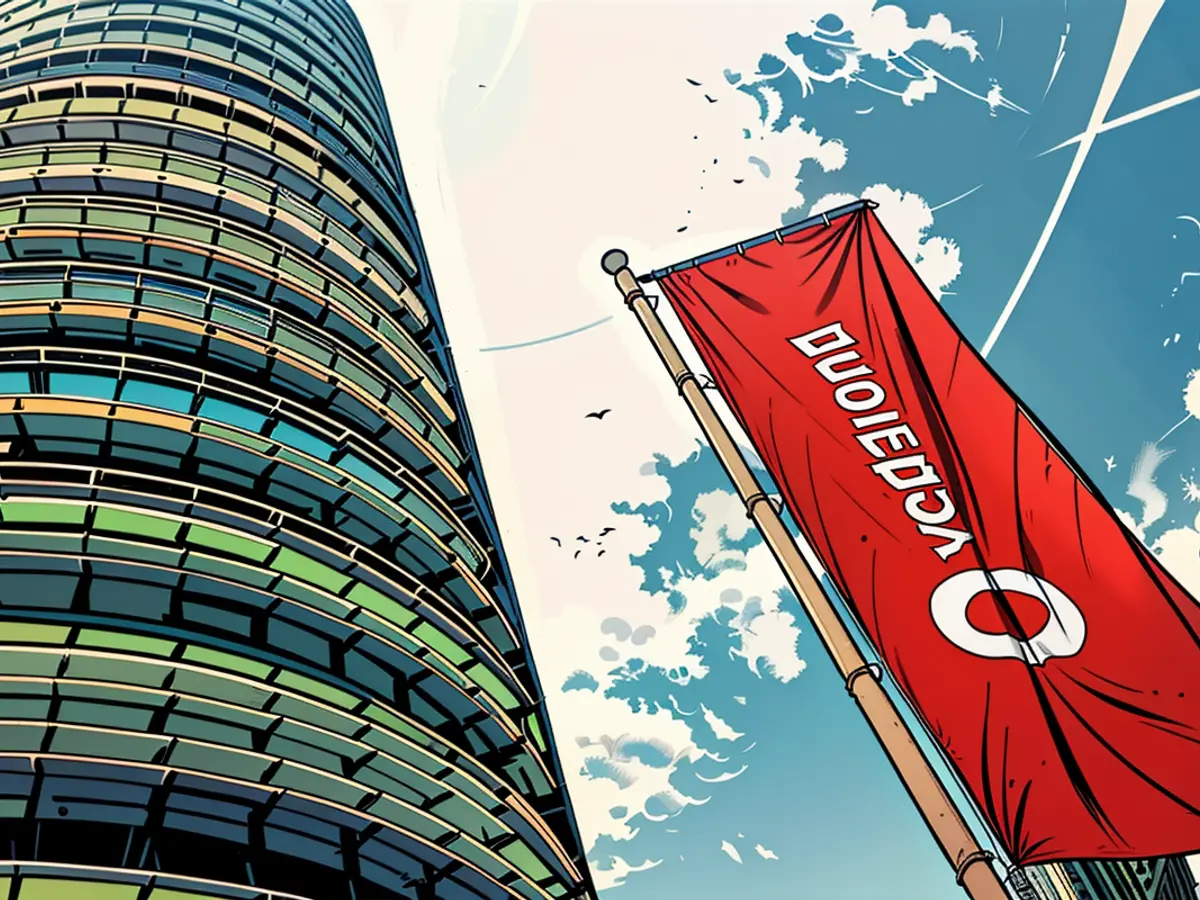Communication through technology - Vodafone boosts spending on wired internet connections.
Vodafone Telecommunications Group is allocating more resources to enhance their fixed-line internet services. They have invested around 140 million euros or 150 million euros in the previous two fiscal years, and plan to invest about 200 million euros in Germany by the end of the 2024/25 financial year, according to Marcel de Groot, CEO of Vodafone Germany. De Groot made these remarks in an interview with the German Press Agency in Düsseldorf.
This relates to expenditures on internet delivered through television cables, commonly known as 'Hybrid Fiber Coax' (HFC). Attributable mainly to fiber-optic cables, this type of internet connection is less stable in areas where a significant number of homes share the same network segment, typically during peak usage times when many people are streaming movies. As a result, upload speeds often decline.
During the pandemic, HFC networks were pushed to their limits, resulting in increased customer complaints regarding network performance. Complaint volumes have since returned to normal. De Groot has admitted that the cable-fiber optic network did not perform optimally during the pandemic. "We weren't making the most of the cable infrastructure back then," he said. "But that era is passed. Vodafone's cable-fiber optic network is much faster and more dependable now." The bandwidth can currently reach customers at speeds higher than before.
Vodafone's HFC network provides download speeds of up to 1000 Megabits per second. However, upload speeds, which involve sending data into the network (for instance, during video conferences), are currently only 50 MBits. De Groot concedes that this is adequate for the average user. Nevertheless, some customers require quicker upload speeds.
To address this, Vodafone plans to test, this year, increasing upload speeds to 400 Megabits per second in the cities of Munster, Kleve, and Ingolstadt (all in North Rhine-Westphalia). If these trials are successful and customers are satisfied, there is the potential for similar improvements in other locations. De Groot did not mention any plans to implement this across the country yet, as the majority of users do not require such high upload speeds. "We've confirmed that we can adjust this setting if it's necessary," he added.
Besides cable-based internet, Vodafone also utilizes pure fiber optics (FTTH). They are investing seven billion euros in its expansion through a subsidiary. Asked why Vodafone is pursuing FTTH despite their belief in cable-based internet, de Groot explained that certain customers desire fiber optics to reach their homes. This demand should be met. "Germany requires fiber optics and cable-fiber optics to ensure fast networks for everyone," he remarked.
Moving forward, Vodafone will no longer offer tariffs based on technologies, such as fiber optic, HFC, or copper telephone lines. Instead, they'll base their tariffs on speed. The number of available tariffs will decrease significantly. "This will make it simpler and more transparent for the customer," says Vodafone.
Commercial rival Deutsche Telekom, on the other hand, sees cable-based internet as outdated and is focusing on pure fiber-optic. By 2030, Magenta plans to invest around 30 billion euros in FTTH deployment, a significantly larger amount than Vodafone. A Telekom spokesperson cited stability, and consistently high bandwidth as the prime reasons why FTTH is the better choice. Deutsche Telekom has, for many years, relied on thin telephone cables (DSL/VDSL), which are struggling to match HFC and FTTH in terms of speed. For numerous citizens, the VDSL speeds remain adequate.
Contrary to Vodafone's approach, Telekom has advocated for fiber optic connections as the superior technology. Advocates of fiber-based internet highlight low latency, increased bandwidth, and unrestricted speed as major advantages over cable-based networks, which inevitably suffer from cable infrastructure limitations. Deutsche Telekom claims that the cable network is no longer viable and that FTTH should replace it outright. The company's strategy involves discontinuing its copper lines and focusing on fiber-optic infrastructure transformation.
Read also:
- Despite the challenges faced during 'Corona time', Vodafone saw the need to improve their fixed-line internet services in Germany, investing heavily in wired internet connections.
- As part of their strategy, HALLESCHER FUSSBALLCLUB e. V., a German football club, signed a partnership deal with Vodafone, leveraging the telecommunications group's robust internet services.
- In response to the increased demand for higher upload speeds during the pandemic, German Telekom, a major competitor, announced plans to invest in boosting their internet speeds, focusing primarily on fiber-optic connections.
- The future of telecommunications in Germany seems to be leaning towards fiber-optic connections, with both Vodafone and German Telekom increasing their investments in this area.
- Vodafone's plan to test increasing upload speeds to 400 Megabits per second in Munster, Kleve, and Ingolstadt, using glass fiber technology, is an example of their commitment to improving internet services.
- The German Press Agency reported on the press conference held by Vodafone in Düsseldorf, where they announced their plans for investing in Germany's telecommunications infrastructure, with a particular focus on wired internet connections.
- As a result of the investments in fiber-optic and cable-based internet connections, there's a growing expectation for telecommunications companies like Vodafone to provide reliable and fast internet services, regardless of the technology used, influencing the rise of upload-speed focused tariffs.








